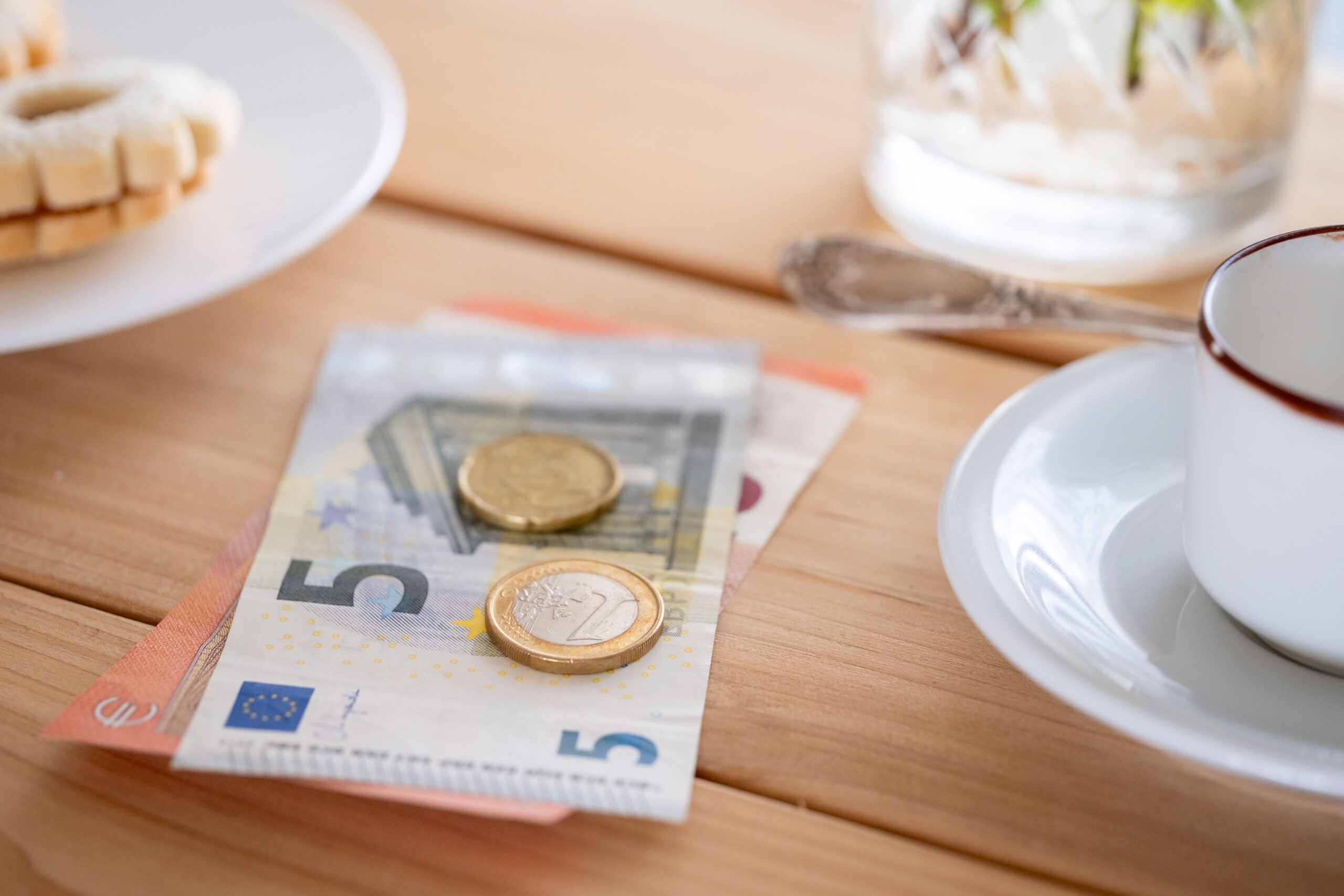
To Tip or Not to Tip?
A Traveler’s Guide to Global Etiquette
One of the quickest ways to feel confident in a new country is to understand its customs—and tipping is one of those details that varies more than you might expect. In some places, tipping is a normal part of daily life. In others, it can be confusing, or even unnecessary.
Whether you’re dining in Paris, taking a taxi in Bangkok, or cruising through the Greek Isles, knowing what’s expected helps you show respect and travel with ease.
- North America
In the United States and Canada, tipping is a major part of the service industry. Waitstaff, bartenders, and many hotel workers depend on it for their income. A tip of 15–20% at table service restaurants is standard, and a few extra dollars for hotel staff or drivers is appreciated. At bars, tipping $1–$2 per drink or around 20% on a tab is customary, and at coffee shops, rounding up or leaving a small tip is appreciated but not expected. - Europe
Across Europe, tipping is seen more as a gesture of gratitude than an obligation. Many restaurants include a “service charge” on the bill, and if they don’t, rounding up or leaving around 5–10% is considered polite. In cafés and taxis, leaving small change is enough. In Scandinavia, tipping is more restrained — service charges are typically included, and locals usually just round up the total. In Southern Europe, such as Italy, Spain, and Greece, tipping a bit extra (around 10%) is more common, especially in tourist areas, though still not required. - Asia
In Eastern Asia like Japan, China, and South Korea, tipping is generally not practiced—and can even be viewed as offensive. Excellent service is part of the culture, and workers take pride in providing it without expecting extra. A simple “thank you” is always appropriate. In Southeast Asia, things vary by country. In Thailand or Vietnam, for instance, small tips—around 5–10% or rounding up the bill—are common in tourist areas. - Latin America
In countries like Mexico, Brazil, and Argentina, tipping is appreciated and often expected in restaurants, where 10–15% is typical. Many hotels and tour operators also rely on tips, so keeping some local currency on hand for drivers, guides, or porters is a good idea. - The Middle East
Tipping is part of the culture in much of the Middle East. In restaurants, 10–15% is standard if service isn’t already included. Taxi drivers and hotel staff also appreciate a small token of thanks. - Australia and New Zealand
Because service wages are higher, tipping isn’t expected in most situations. However, locals likely wouldn’t turn down a small gesture for great service—around 5–10% in a restaurant, or rounding up the fare for a driver.
Cruise Line Tipping Practices
Yes, you should tip on a cruise. Most mainstream cruise lines automatically add a daily service charge to your bill, and many crew members depend on these gratuities as a significant part of their income. While this covers most onboard staff, it’s customary to tip extra for exceptional service or for specific crew members you want to acknowledge. Don’t forget to tip luggage porters at the terminal and tour guides or drivers on excursions.
- Automatic gratuities:
Most large cruise lines charge a daily service fee per person, which is automatically added to your onboard account. You can usually prepay this before your trip or have it billed at the end of your cruise. - Beverages:
A gratuity of 15–18% is often automatically added to bar and beverage bills, but you can always add more for excellent service. - Optional extra tips:
If you’ve already paid the automatic charges, there’s no obligation to tip more—but many guests still choose to give cash tips for exceptional service or leave local currency from their trip in their cabin for housekeeping. - Tips for specific services:
- Luggage porters: $2–$5 per bag at the cruise terminal
- Excursion staff: $5–$10 per person for tour guides and drivers
- Exceptional service: Extra cash tips for your room steward, waiter, or bartender are always appreciated
- Special occasions: If a crew member helps make your celebration memorable, consider a personal tip
Other ways to show appreciation:
- Commendation cards: Fill one out at the guest services desk to recognize great service—these can help crew earn bonuses or promotions.
- Direct cash tips: Handing cash directly to crew members ensures it goes straight to them.
- Casino staff: If you gamble, it’s customary to tip dealers or attendants in cash or chips.
A Few Simple Guidelines
- Check your bill before tipping—many places include service charges.
- Local cash only: tipping in USD can create more hassle than help.
- Carry small bills in local currency or coins for easy tipping in cash.
- Follow local lead—watch what residents do and mirror their approach.
- When in doubt, ask your hotel concierge or tour director for advice.
- And remember, a genuine smile and thank-you always go further than the amount itself.
Every destination has its own rhythm of generosity and gratitude. Understanding tipping culture isn’t just about avoiding mistakes—it’s about connecting respectfully with the people who make your travels memorable.
At Go Next, we believe thoughtful travelers make the best guests. So wherever your next journey takes you, bring an open heart, an appreciative spirit, and maybe a few small bills tucked in your pocket—just in case.